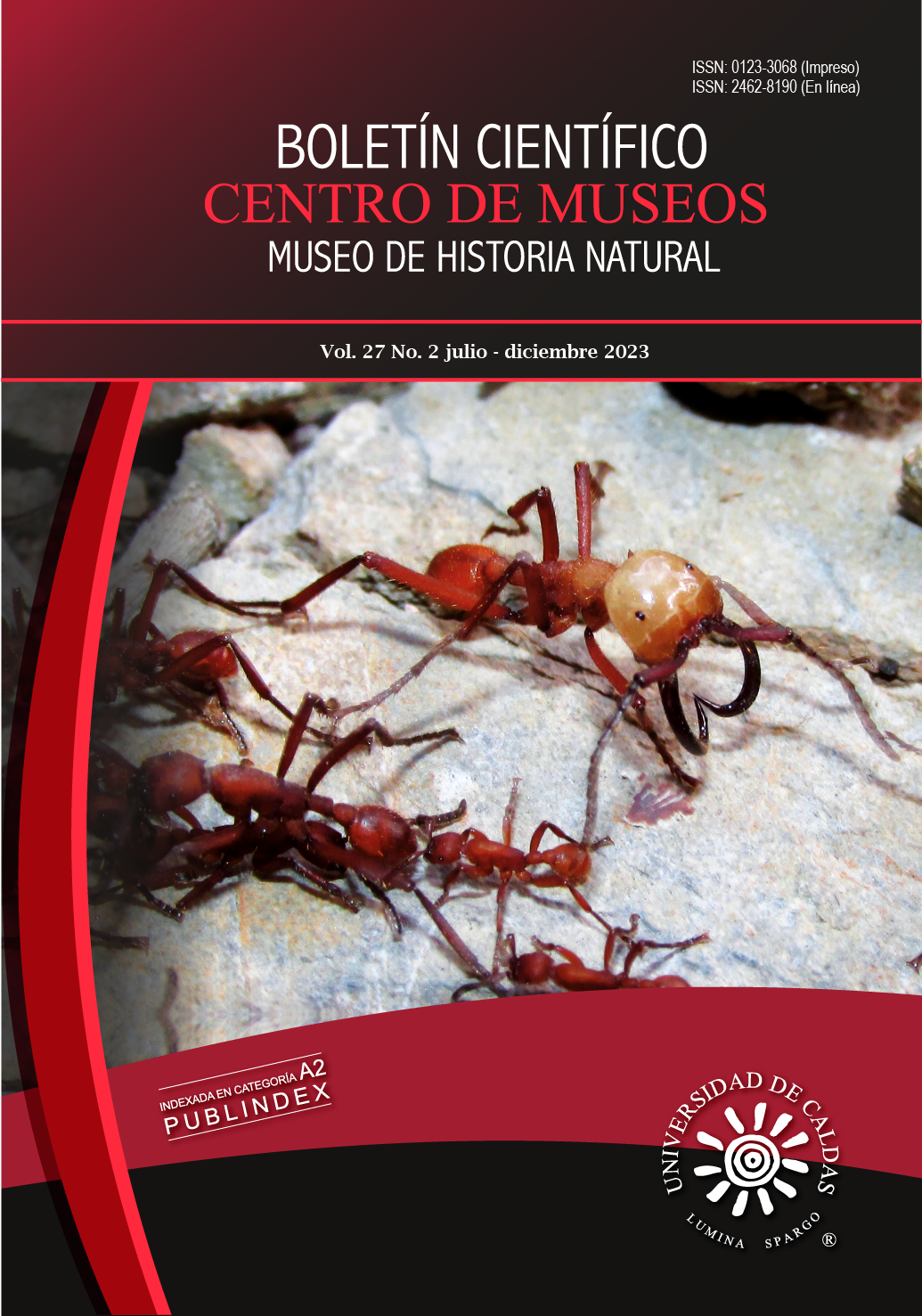Authors
Abstract
Objective: To evaluate the bactericidal efficacy of three types of ultraviolet light according to their wavelength: UVA (315 nm - 400 nm), UVB (280 nm - 315 nm) and UVC (200 nm - 280 nm). Materials and methods: Two processes were carried out in the experimental phase, the first consisted of obtaining the E. coli bacterial inoculum; the bacteria were grown in liquid LB culture medium at an OD of 600 nm, where a concentration of 3.9x107 CFU/ml was obtained, then 30µl of bacteria were seeded in petri dishes with solid LB culture medium. The second phase consisted of the assembly and arrangement of the UV light, in this case LEDs were used for each type of UV light, which allowed the design of three lamps with different power (1, 3, 5 watts/LED); Once the bacteria were inoculated in the culture medium, each plate was irradiated with a lamp using powers of 0.051 w/cm2, 0.152 w/cm2 or 0.254 w/cm2, at intervals of 1, 3 and 5 minutes and with a fixed exposure distance of the lamp to the culture of 1 cm, subsequently the petri dishes were left at 37ºC for 16 hours. Results: Lamps using UVA light had no effect on bacteria; lamps generating UVB light slightly affected bacterial growth, only under conditions of high power and prolonged exposure times; UVC lamps achieved the bactericidal effect by eliminating all bacteria from the area of direct incidence of UV light. Conclusion: UVA and UVB light have no marked bactericidal effect, while UVC light has a bactericidal effect in the area of incidence, independent of power and exposure time.
Keywords
References
Alcántara-Muñoz, F., Moreno-Rojas, R., Moreno-Ortega, A., Muñoz-Cañete, J. y Gómez-Díaz, R. (2016). Nulo efecto bactericida de la radiación ultravioleta emitida por diodos LED. Journal of Negative & No Positive Results, 1(6), 210-215. https://doi.org/10.19230/jonnpr.2016.1.6.1083
Alves, D. B. P., Saraiva, L. L., Souza, H. P. de O. D., Mota, M. S. de A. y Santana, D. L. (2021). Effectiveness of decontamination methods in tissue masks with ultraviolet light and ozone gas. Research, Society and Development, 10(15), e138101522846.https://doi.org/10.33448/rsd-v10i15.22846
Bohórquez-Ballén, J. y Pérez-Mogollón, J. F. (2007). Radiación ultravioleta. Ciencia & Tecnología para la Salud Visual y Ocular, 5(9), 97. https://doi.org/10.19052/sv.1520
Briones-Cando, N. A. (2020). Luz ultravioleta para desinfección en áreas de salud, frente al covid-19. revisión de literatura. Odontología Activa Revista Científica, 5(3), 111-118. https://doi.org/10.31984/oactiva.v5i3.501
Byrns, G., Barham, B., Yang, L., Webster, K., Rutherford, G., Steiner, G., Petras, D. y Scannell, M. (2021). Usos y limitaciones de la lámpara ultravioleta germicida portátil para la desinfección de superficies. Journal of Occupational and Environmental Hygiene, 18(S1), S75-S85. https://doi.org/10.1080/15459624.2021.1877057
Davidson, M. W. (2014). Pioneers in Optics: Johann Wilhelm Ritter and Ernest Rutherford. Microscopy Today, 22(2), 48-51. https://doi.org/10.1017/s1551929514000029
Delorme, M. M., Guimarães, J. T., Coutinho, N. M., Balthazar, C. F., Rocha, R. S., Silva, R., Margalho, L. P., Pimentel, T. C., Silva, M. C., Freitas, M. Q., Granato, D., Sant’Ana, A. S., Duart, M. C. K. H. y Cruz, A. G. (2020). Ultraviolet radiation: An interesting technology to preserve quality and safety of milk and dairy foods. In Trends in Food Science and Technology (Vol. 102, pp. 146-154). Elsevier Ltd. https://doi.org/10.1016/j.tifs.2020.06.001
Diab-El Schahawi, M., Zingg, W., Vos, M., Humphreys, H., Lopez-Cerero, L., Fueszl, A., Zahar, J. R. y Presterl, E. (2021). Ultraviolet disinfection robots to improve hospital cleaning: Real promise or just a gimmick? In Antimicrobial Resistance and Infection Control (Vol. 10, Issue 1). BioMed Central Ltd. https://doi.org/10.1186/s13756-020-00878-4
Fontal, B., Suárez, T., Reyes, M., Bellandi, F., Contreras, R. y Romero, I. (2005). El espectro electromagnético y sus aplicaciones. VII Escuela Venezolana para la Enseñanza de la Química, 151.
González-Pérez, D., Rosas-Casals, M. y González-Avilés, M. (2015). Tratamiento ultravioleta del agua a escala doméstica: sistema de desinfección solar usando la óptica anidólica. Universitat Politècnica de Catalunya. https://upcommons.upc.edu/handle/2117/108440
Guerrero-Beltrán, J. A. y Barbosa-Cánovas, G. V. (2004). Review: Advantages and limitations on processing foods by UV light. In Food Science and Technology International, 10(3), 137-147). SAGE Publications. https://doi.org/10.1177/1082013204044359
Heilingloh, C. S., Aufderhorst, U. W., Schipper, L., Dittmer, U., Witzke, O., Yang, D., Zheng, X., Sutter, K., Trilling, M., Alt, M., Steinmann, E. y Krawczyk, A. (2020). Susceptibility of SARS-CoV-2 to UV irradiation. American Journal of Infection Control, 48(10), 1273-1275. https://doi.org/10.1016/j.ajic.2020.07.031
Inagaki, H., Saito, A., Sugiyama, H., Okabayashi, T. y Fujimoto, S. (2020). Rapid inactivation of SARS-CoV-2 with Deep-UV LED irradiation. In Emerging Microbes and Infections (pp. 1744-1747). Taylor and Francis Ltd. https://doi.org/10.1080/22221751.2020.1796529
Kumar, A., Sagdeo, A. y Sagdeo, P. R. (2021). Possibility of using ultraviolet radiation for disinfecting the novel COVID-19. Photodiagnosis and Photodynamic Therapy, 34, 102234. https://doi.org/10.1016/j.pdpdt.2021.102234
Maniatis, T., Frirsch, E. y Sambrook, J. (1982). Molecular: a laboratory manual. Cold Spring Harbor Laboratory Press, 545. https://www.amazon.com/-/es/Michael-R-Green/dp/1936113422
McMullen, K., Guth, R. M., Wood, H., Mueller, C., Dunn, G., Wade, R., Siddiqui, A., Dubberke, E. R., Woeltje, K. F. y Warren, D. K. (2021). Impact of no-touch ultraviolet light room disinfection systems on Clostridioides difficile infections. American Journal of Infection Control, 49(5), 646-648. https://doi.org/10.1016/j.ajic.2020.08.030
Millán, D., Romero, L., Brito, M. y Ramos-Villarroel, A. (2015). Luz ultravioleta: inactivación microbiana en frutas. Saber, 27(3),454-469. https://ve.scielo.org/scielo.php?script=sci_arttext&pid=S1315-01622015000300011
Pietrobon-Tarrán, E. (2012). Desinfección por Luz Ultravioleta. Revista Água Latinoamérica. http://ecured.cuwww.agualatinoamerica.com/docs/pdf/3-4-02inter.pdf
Rossel-Bernedo, L. J., Rossel-Bernedo, L. A., Mayhua, F. Ferro-Gonzales, A. L. y Zapana-Quispe, R. R. (2020). Radiación ultravioleta-c para desinfección bacteriana (coliformes totales y termotolerantes) en el tratamiento de agua potable. Revista de Investigaciones Altoandinas, 22(1), 68-77. https://dx.doi.org/10.18271/ria.2020.537

 PDF (Español)
PDF (Español)
 FLIP
FLIP






















